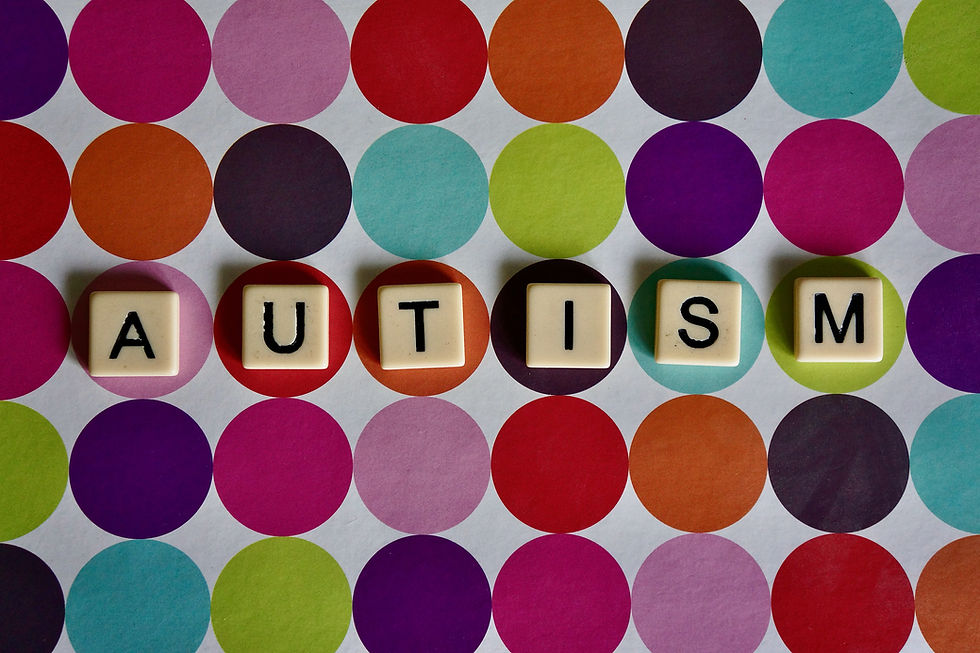Enhancing Digital Engagement for People on the Autistic Spectrum
- Pete Phillips

- Jul 8, 2021
- 2 min read
by Laura Neale and Emma Major
This month our digital inclusivity blog posts are going to be about making digital content accessible and inclusive for autistic people. I had the pleasure of chatting with Sarah who shared some ways in which she feels excluded as an autistic person on line so this first post will be a summary of that and will include some quotes from Sarah.

The first, and perhaps most in important point to make, is that there is not something ‘wrong’ with someone who is autistic.
Sarah told me that some people say things such as ‘you wouldn’t know there was anything wrong with you’ and ‘but you look normal, you can’t be autistic’. Autistic people are not ill; their brain just works differently to others. This might mean they interact with the world and communicate differently, but different does not mean wrong.
“It is often not my autism that causes difficulty in engaging (with others) but rather the perceptions about autism that others have”, Sarah explained. “Do not ask if you can pray for my autism to be healed”.
New things or changes can be difficult for some autistic people so changes to the way a group meets, the timing or structure. This is relevant for groups that meet onsite as it is online in Zoom groups, or even for YouTube videos such as a Sunday service.
“You will probably not realise that I am distressed,” Sarah says, “because I am so good at masking. This is not the social camouflaging that we all do to present our best selves, it is an unconscious survival strategy constructed over many years of bullying, being ostracised and rejected”.
By keeping everyone in your group/ community up to date with any changes as soon as possible, people will have time to prepare themselves, and we can avoid causing people to become upset and distressed.

Everyone engages with content differently and finds some media easier to engage with than others. Some people prefer blog posts, others videos and some people prefer audio. The same is true for autistic people because no two autistic people are the same. Sarah, and many others, can find it difficult to keep up with fast moving conversations, whether that is audibly or written text, such as on a social media post or in direct messaging platforms such as WhatsApp, Twitter and Facebook messenger, as she needs processing time.
“I prefer written (text) as verbal reception isn’t a strong point”. “I like easy read (versions of text)”.
Whether written or spoken, try to avoid using complex language, including Christianese and old English. Doing this will benefit many people, including anyone who is not familiar with biblical texts or common Christian phrases. When sharing a blog post or any large amount of text:
try to incorporate bullet points, paragraphs
and utilise mixed media.
We have only just touched on some of the practical ways that you can make your digital content more inclusive and accessible for autistic people here. We will be sharing more about this on our second blog post later this month, so make sure you don’t miss that!
For more on this subject see: Digital technologies supporting persons on the autistic spectrum





Situs dominobet offers a trusted platform for online card games including poker with secure transactions and responsive customer support to ensure players enjoy fair play regular promotions mobile compatibility and reliable server uptime across global regions for everyone today 2. situs dominobet
Creating engaging digital content for autistic individuals requires clear, structured design. Focus on visual clarity, consistent navigation, and minimal distractions. Use concrete language and avoid complex metaphors. Consider incorporating gamification elements, maybe even channeling the thrill of a Moto X3M level completion, to boost motivation and interaction. Prioritize accessibility features like text-to-speech and adjustable font sizes. Testing with the target audience is crucial for optimal effectiveness.
Our Aerocity Escorts Service is meant for those who want the best in companionship. With a range of stunning Escorts in Aerocity at your disposal, each moment spent with them is full of joy and excitement. Whether you wish to impress at a party or just have a warm night in, our Aerocity escorts are here to make all your dreams come true!
Our Delhi Escort provides the widest possible variety of services to ensure ultimate sexual gratification. From sensual massages to BDSM, we've got you covered. Our escorts Service in Delhi are committed to adult entertainment at the highest level. From sensual massages to role-play, our girls will leave you feeling fully satisfied.
First Pitch: 9:10 pm CDTTV: Bally Sports NorthRadio: WCCO 830, Audacy, The Wolf 102. 9 FM, TIBN, twinsbeisbol. comKnow Thine Enemy: Lookout LandingAfter another series loss Kirby Puckett Flag, the Twins roll into Seattle with some reinforcements. Luis Arraez and Kenta Maeda have been reinstated from the IL. Michael Pineda is headed to the IL with right elbow inflammation along with Rob Refsnyder with a right hamstring strain. Byron Buxton hasn't been activated yet. At long last, our king Kenta Maeda has returned and will be taking the mound tonight. Luis Arraez was activated but is not in the lineup, and Byron Buxton traveled with the team but has not been activated as of yet. Seattle is 32-35, s…